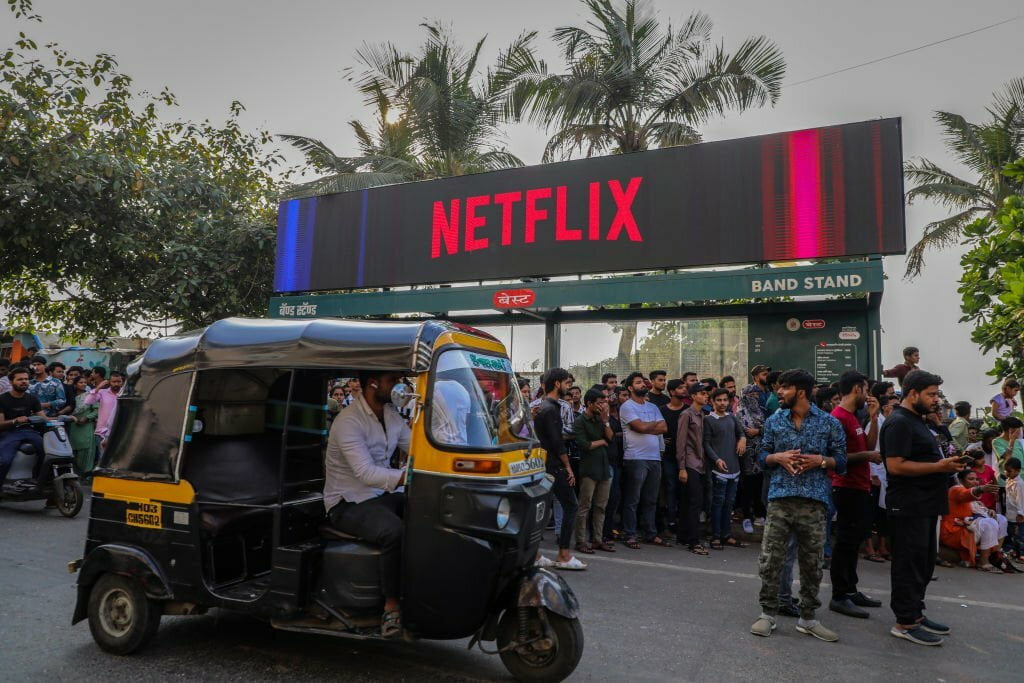Business
Citi Government Travel Card: Everything You Must Understand

Citi Government Travel Card: The Citi Government Travel Card is an essential payment and expense management solution for U.S. government employees. This card simplifies travel payments and streamlines the reconciliation process. Here is a comprehensive guide to everything you need to know about the Citi Government Travel Card program.
What is the Citi Government Travel Card?
The Citi Government Travel Card is a charge card issued by Citibank to U.S. government employees for official travel and travel-related expenses. It provides a more efficient way for government travelers to pay for expenses like hotels, transportation, meals and incidentals.
The card is sponsored by the U.S. General Services Administration (GSA) as part of the GSA SmartPay program. Citibank is the issuing bank for the travel card. There are over 3 million Citi Government Travel Card accounts for U.S. government employees and military personnel.
Key Benefits of the Citi Government Travel Card
Here are some of the main benefits of using the Citi Government Travel Card:
- Streamlines travel expense management – Charges are billed directly to the government. Employees don’t have to pay expenses out of pocket.
- Enhances convenience – Widely accepted by merchants, works similar to a personal credit card.
- Provides purchasing power – Higher credit limits than personal cards, ideal for booking travel.
- Increases security – Provides transparency into government travel spend compared to cash or personal cards.
- Improves savings – Agencies can take advantage of rebates by negotiating with Citibank.
- Integrates tracking – Charges flow directly into travel management systems.
Types of Citi Government Travel Card Accounts
There are three main types of Citi Government Travel Card accounts:
Individually Billed Accounts (IBA)
Individually billed accounts are the most common travel card account. The employee is responsible for paying the bill. IBA accounts are issued in the employee’s name and they are liable for making on-time payments.
Centrally Billed Accounts (CBA)
With centrally billed accounts, the agency or organizational unit pays the bill directly. CBA accounts are typically used for group or site-specific travel where individuals wouldn’t pay their own expenses.
Restricted Accounts
Restricted accounts limit use to specific merchant categories or dollar amounts. They provide agencies with extra control over travel spend. Restrictions help enforce travel policies and prevent misuse.

How to Apply for a Citi Government Travel Card
Applying for a Citi Government Travel Card involves these steps:
- Check that you are eligible – You must be a U.S. government employee traveling on official business.
- Obtain application forms – Contact your agency’s travel card program coordinator.
- Complete application – Fill out the forms with all required personal and employment information.
- Provide signatures – Both the employee and approving official need to sign.
- Submit application – Send completed forms to your agency’s program coordinator.
- Wait for approval – Citibank will review the application and verify eligibility.
- Activate card – Once approved, activate your card when you receive it.
- Review terms – Read all policies, procedures, and cardholder agreement terms.
The card should arrive within 7-10 business days once you are approved. Then you’ll need to activate it and review all the applicable rules before making any charges.
How the Citi Government Travel Card Works
Here is an overview of how to use the Citi Government Travel Card:
Making Purchases
You can use the card to pay for any authorized travel expenses such as airfare, lodging, rental cars, meals, and incidental purchases like baggage fees. The card works similar to a normal credit card via chip, swipe, or contactless payments.
Getting Reimbursed
For individually billed accounts, you will need to submit expenses on a travel voucher to your agency. Once approved, you will be reimbursed. The reimbursement should be used to pay your travel card bill.
Paying Your Bill
Citi provides online and mobile access to view statements and make payments. For IBAs, you are responsible for paying the balance each month. Payments are typically due within 30 days of the statement closing date.
Reporting Lost or Stolen Cards
If your card is lost or stolen, report it immediately to Citibank and your agency’s program coordinator. You can request an emergency replacement card in 2 business days or less.
Account Verification and Security
Citibank uses chip card technology, 3D Secure, and CVV codes to verify transactions. Be sure to check charges frequently in your online account and report any unauthorized activity promptly.
Prohibited Uses of the Citi Government Travel Card
There are restrictions on how you can use the Citi Government Travel Card. Prohibited transactions include:
- Personal purchases
- Family expenses
- Cash advances
- Gift cards
- Fines or penalties
- Insurance policies
- Anything not authorized under travel regulations
Personal and unauthorized use can result in disciplinary action from your agency or even criminal charges in severe cases.
Costs and Fees of the Citi Government Travel Card
There are no fees directly charged to the employee government travel cardholder. However, agencies can incur program costs. Common agency fees include:
- Setup fees – For establishing new card programs
- Account fees – Flat monthly fee per travel card account
- Transaction fees – Per transaction processing fee
- Late fees – Charged if account reconciliation is delayed
Citibank also provides rebates to the agency based on sales volume. Rebates can often offset program fees and provide savings.
Is the Citi Government Travel Card Mandatory?
Use of the Citi Government Travel Card is mandatory across most federal agencies and military branches. There are regulations requiring the use of government issued travel cards.
The Government Charge Card Abuse Prevention Act mandates use of travel cards on official business. The Federal Travel Regulation also requires card use. Agencies may stipulate some exceptions if an employee cannot qualify for a card.
Refusing to apply for or use a government travel card can result in disciplinary action per your agency’s policies. Most agencies strongly enforce mandatory card use.
How to Use the Citi Government Travel Card Responsibly
To properly manage your Citi Government Travel Card, be sure to:
- Read and understand all policies and procedures for your agency’s card program.
- Only make authorized purchases related to official travel.
- Review charges frequently and report any unauthorized activity.
- Submit expenses and get reimbursed promptly.
- Pay the balance in full each billing cycle.
- Notify your agency and Citibank immediately if your card is lost or stolen.
- Do not use for personal expenses or to withdraw cash.
Responsible use includes staying compliant with all regulations and ensuring the card is used only for approved purchases.
What Happens If You Misuse the Card?
Intentional misuse of the Citi Government Travel Card can have serious consequences. Potential penalties include:
- Revoking travel card privileges
- Disciplinary action from your agency
- Account delinquency reported to credit bureaus
Business
11 Best Rewards Credit Cards in January 2024 in USA

Best Rewards Credit Cards: Rewards credit cards allow cardholders to earn points, miles, or cash back on purchases. With so many options, it can be difficult to identify the top rewards cards available today. Based on points earning rates, redemption values, and benefits, here are the 16 best rewards credit cards in January 2024 in the USA.
1. Chase Sapphire Preferred
With strong travel redemption options and bonus categories, the Chase Sapphire Preferred is one of the top travel rewards cards. Key features include:
- 60,000 point signup bonus worth $750 in travel
- 5x points on travel booked through Chase
- 3x points at restaurants, grocery stores, select streaming services
- $50 annual hotel credit
- Primary rental car insurance
Points are worth 1.25 cents each when booking travel through Chase. With a reasonable $95 annual fee, the Sapphire Preferred is a great option for earning rewards on dining and travel.
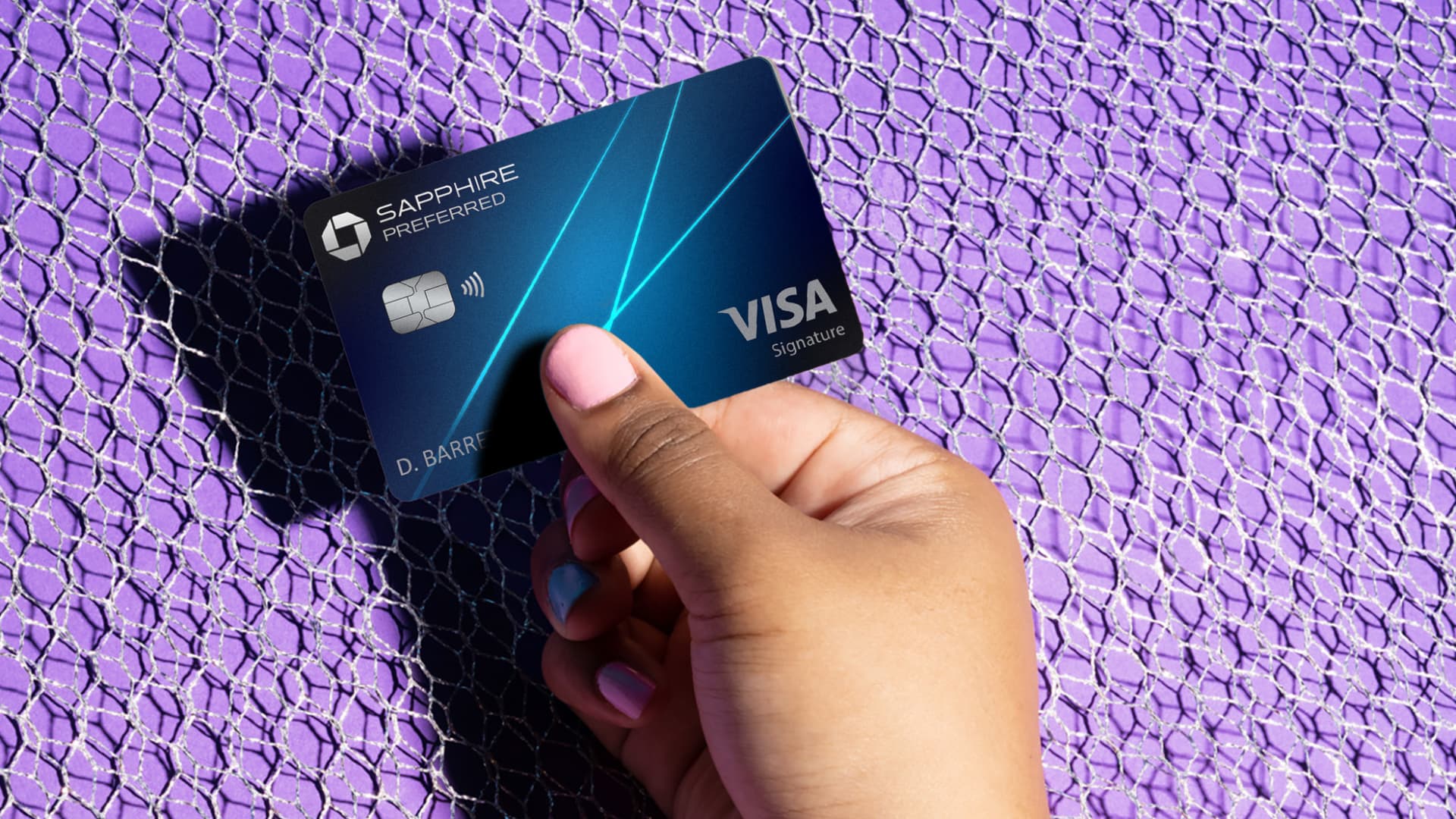
2. American Express Gold Card
The Amex Gold Card offers 4x points on dining and groceries, making it a top card for food purchases. Benefits include:
- 60,000 point welcome bonus
- 4x points at restaurants and US supermarkets
- $120 dining credit
- $100 airline fee credit
- No foreign transaction fees
With a $250 annual fee, this card is best for those who frequently dine out and buy groceries. The credits help offset the fee and provide additional statement savings.

3. Chase Freedom Unlimited
As one of the best no annual fee cash back cards, the Chase Freedom Unlimited offers solid earning rates and redemption options. Benefits include:
- $200 bonus after spending $500 in first 3 months
- 1.5% cash back on all purchases
- 5% cash back on travel booked through Chase
- No annual fee
With no annual fee, this is a great card for daily spending and maximizing cash back earnings. Points can be transferred to Chase travel partners when paired with a premium Chase card.
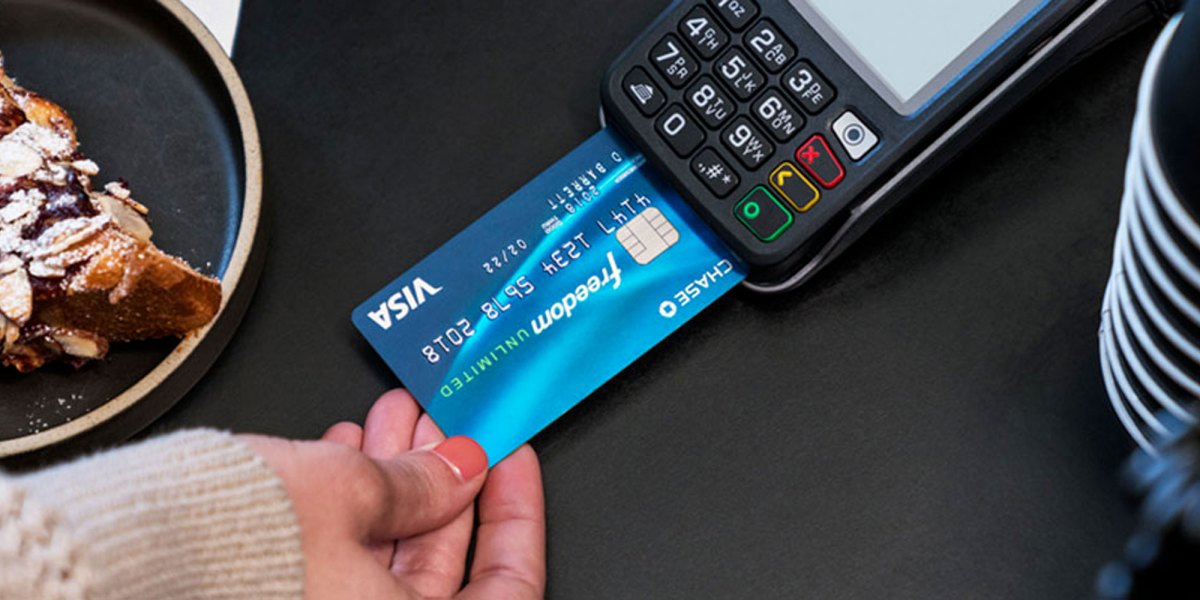
4. Capital One Venture X
The Capital One Venture X is one of the top travel rewards cards with premium benefits. Highlights include:
- 75,000 mile welcome bonus
- 2x miles on all purchases
- $300 annual statement credit for travel
- Complimentary airport lounge access
- Redeem miles for travel statement credits
Despite a hefty $395 annual fee, the statement credits and lounge access help offset the cost. With flexible redemption and strong bonus earning, this is one of the best premium travel cards.
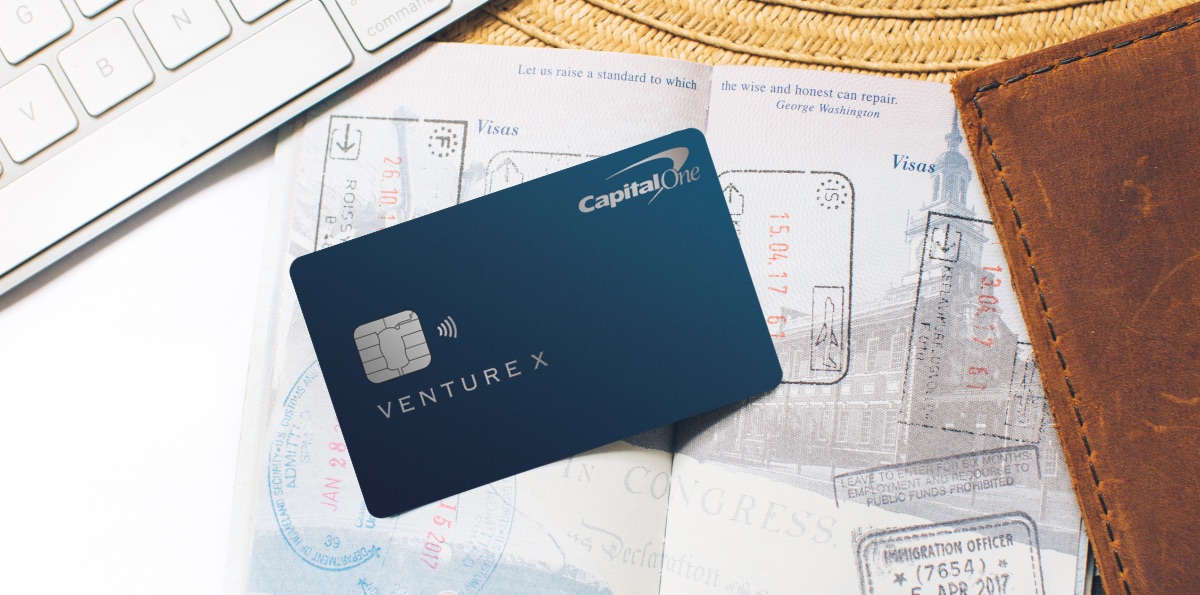
5. Citi Custom Cash Card
The Citi Custom Cash Card offers a unique 5% cash back bonus category that you choose each billing cycle. Key features include:
- $200 sign up bonus after $750 in spending
- 5% cash back in top eligible spend category
- 1% cash back on other purchases
- No annual fee
This provides flexibility to earn bonus rewards in the categories where you spend the most each month. With no annual fee, the Citi Custom Cash Card is extremely valuable for maximizing category bonuses.
6. Bank of America® Cash Rewards credit card
With customizable 3% and 2% bonus categories, the Bank of America Cash Rewards card provides options for your spending habits. Benefits include:
- $200 online cash rewards bonus
- 3% cash back in category of your choice
- 2% cash back at grocery stores and wholesale clubs
- 1% cash back on other purchases
- No annual fee
This card allows you to pick from gas, online shopping, dining, travel, drug stores, or home improvement/furnishings for your 3% category each month. This flexibility combined with solid earning rates makes it a top no annual fee cash back card.
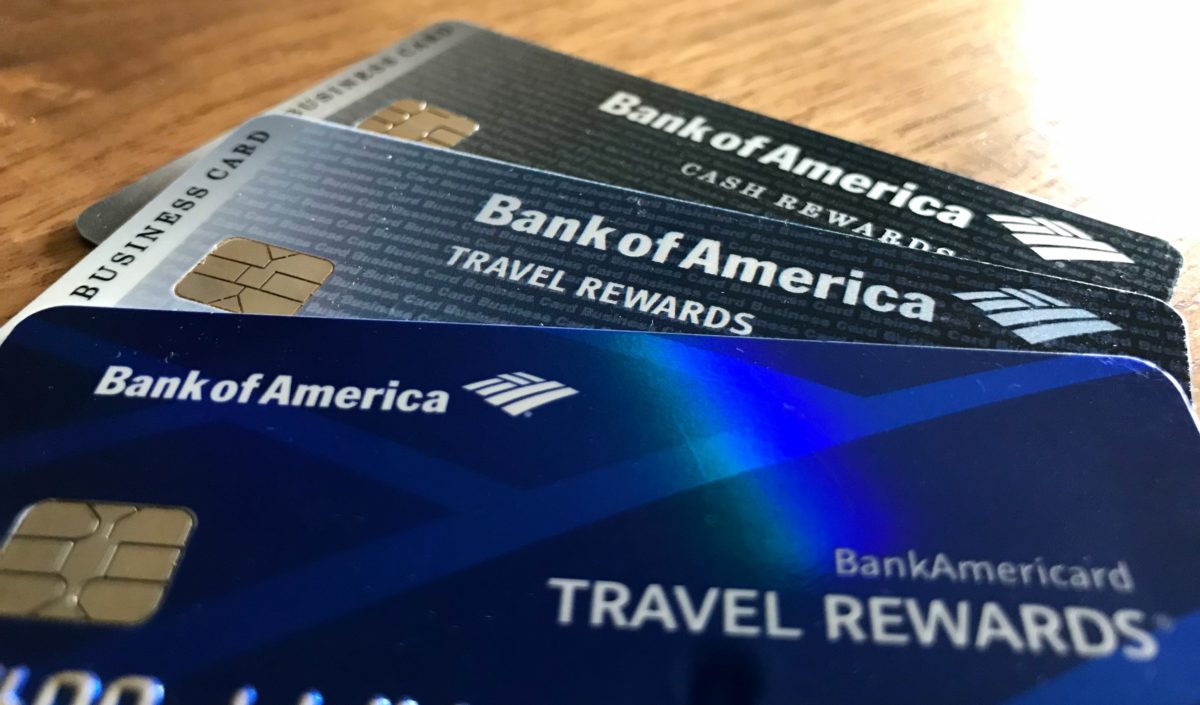
7. Wells Fargo Active Cash Card
The Wells Fargo Active Cash Card has one of the best flat-rate cash back rates available with no annual fee. Benefits include:
- $200 cash rewards bonus
- Unlimited 2% cash rewards on purchases
- Cell phone protection
- Intro 0% APR offer
- No annual fee
Earning an unlimited 2% back on all purchases with no bonus category restrictions is valuable for those who want simple cash back without an annual fee. You can redeem rewards for cash back as a statement credit, deposit, or mobile wallet credit.

8. U.S. Bank Altitude Connect Visa Signature Card
The U.S. Bank Altitude Connect offers 4x points on travel and at gas stations, plus solid mobile wallet rewards. Benefits include:
- 50,000 point welcome bonus
- 4x points on travel and gas
- 2x points on grocery stores, grocery delivery, streaming services, and EV charging stations
- 1x point per $1 on other eligible purchases
- $15 monthly credit for mobile wallet purchases
There is a reasonable $95 annual fee for this card. With no foreign transaction fees and travel and mobile wallet perks, this card can maximize rewards for daily spending. The welcome bonus value is also among the best available.
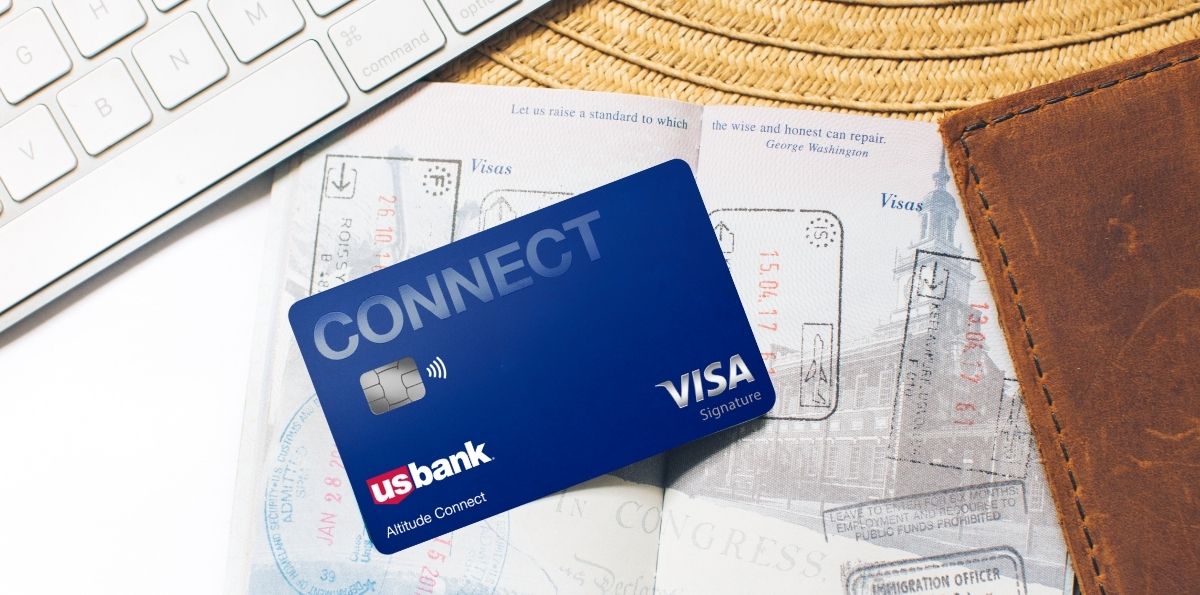
9. Blue Cash Preferred Card from American Express
With 6% cash back at US supermarkets, the Blue Cash Preferred Card from Amex is one of the top options for grocery shopping. Benefits include:
- $350 statement credit after $3,000 in purchases in the first 6 months
- 6% cash back at US supermarkets
- 6% cash back on select US streaming services
- 3% cash back on transit including taxis/rideshare, parking, tolls, trains, buses and more
- 1% cash back on other purchases
There is a $95 annual fee for this card, but the high earning rate on groceries can quickly offset it. This card also provides one of the best cash back rates for streaming services.

10. Citi Premier Card
With broad 3x bonus categories and a large welcome bonus, the Citi Premier Card is a top contender for everyday rewards. Benefits include:
- 80,000 point welcome bonus after $4,000 spend in 3 months
- 3x points on air travel, gas stations, restaurants, supermarkets, hotels, and entertainment
- 1x points per $1 spent on other purchases
- $100 annual hotel savings benefit
There is a $95 annual fee that is well worth it considering the strong welcome bonus and bonus earning potential with this card. The points can also be transferred to airline partners for added redemption value.
11. Chase Ink Business Cash Credit Card
With no annual fee, the Chase Ink Business Cash Credit Card is one of the best cards for small business rewards. Benefits include:
- $750 bonus cash back after $7,500 in purchases within 3 months of account opening
- 5% cash back on up to
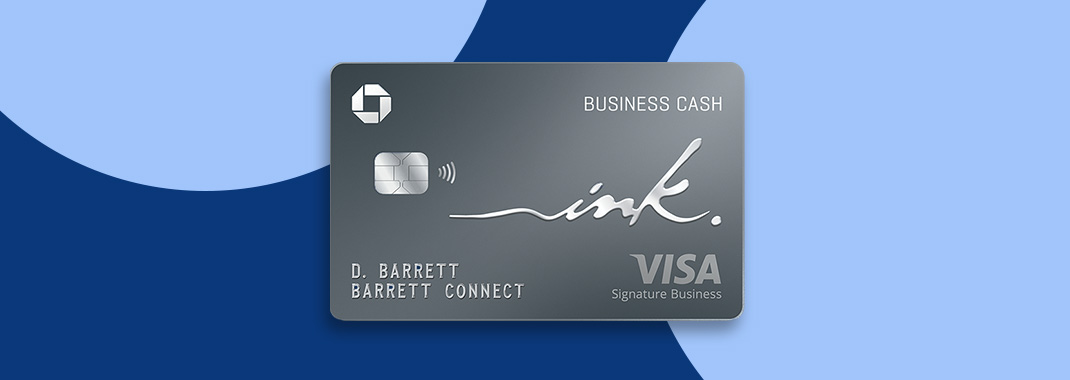
Business
The 10 Best Personal Loans of Year 2024

Best Personal Loans: Taking out a personal loan can be a great way to finance large purchases or consolidate high-interest debt. With interest rates still near historic lows in 2024, it’s an ideal time to take advantage of a low-rate personal loan. Here are the 10 best personal loans of 2024 based on interest rates, fees, loan amounts, terms, and borrower requirements.
1. LightStream – Best Personal Loans
LightStream offers outstanding rates with no fees and highly customizable loan options. Here are some of the key features:
- Interest rates from 3.49% to 19.99% APR with AutoPay discount
- Loan amounts from $5,000 to $100,000
- Terms from 24 to 144 months
- No application, origination, or prepayment fees
- Quick funding in as soon as 1 business day
LightStream has an easy online application and provides funds directly to your bank account. Loan eligibility is based primarily on creditworthiness rather than income. LightStream offers both secured and unsecured loan options. Overall, LightStream is our pick for best overall personal loan because of its low rates, minimal fees, and flexible loan options.
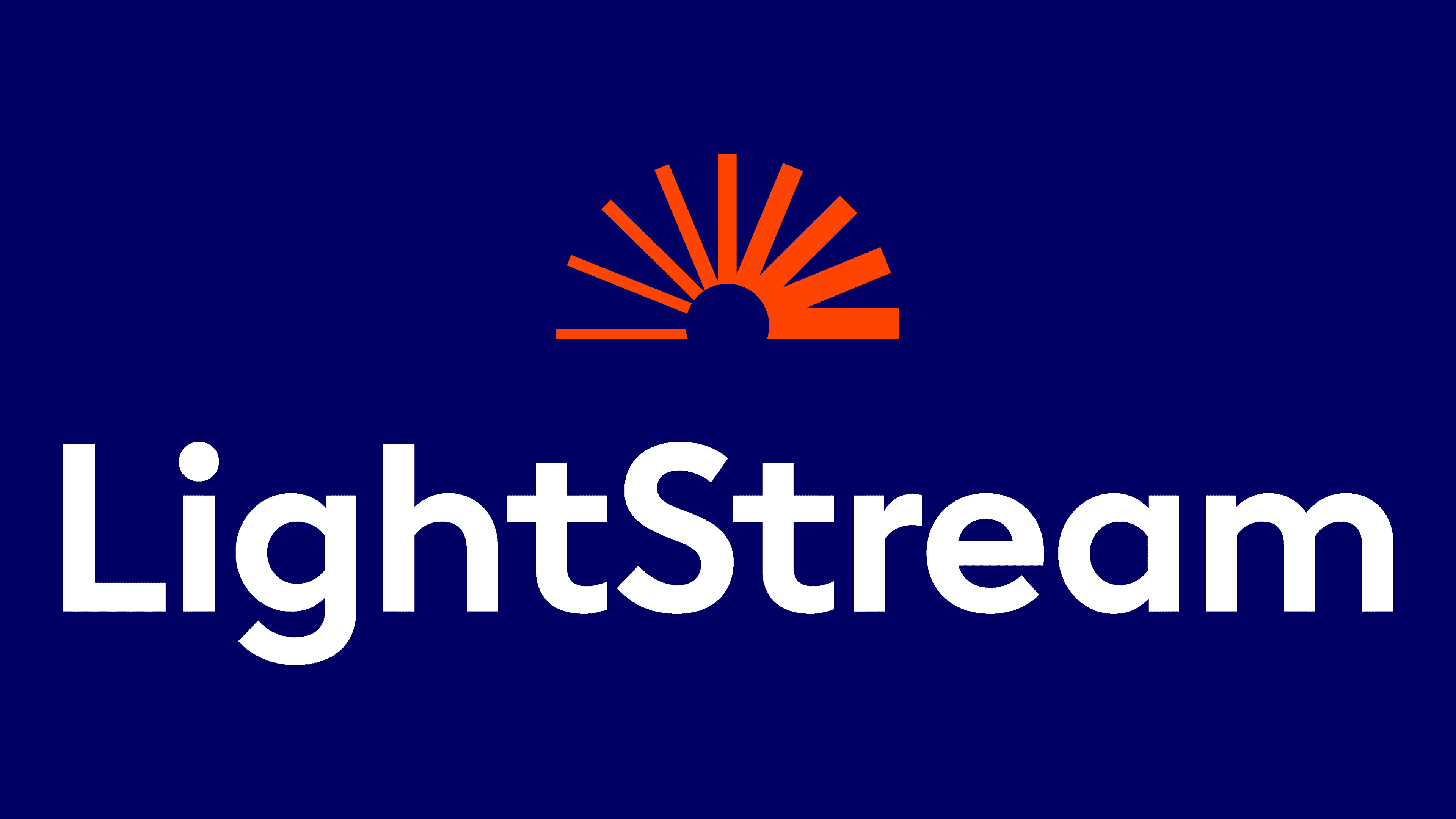
2. SoFi – Best for High Loan Amounts
SoFi offers personal loans up to $100,000 along with competitive interest rates and member benefits. Here’s an overview:
- Interest rates from 5.99% to 20.28% APR
- Loan amounts from $5,000 to $100,000
- Terms from 24 to 84 months
- No application or prepayment fees
- Unemployment protection and career coaching
SoFi personal loans don’t have any application or origination fees. Prequalifying online is easy with no impact to your credit score. SoFi members get access to career coaching, entrepreneur programs, and other unique benefits. SoFi is our top pick for high loan amounts thanks to loans up to $100K and great rates.
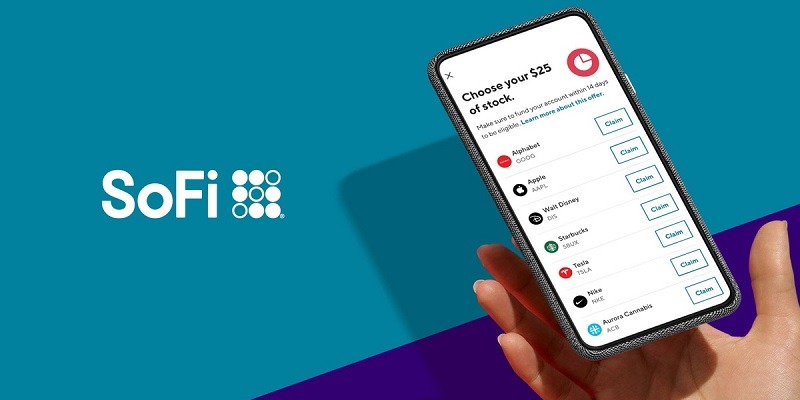
3. Upgrade – Best Credit Health Tools
Upgrade offers rewards programs and credit health monitoring along with competitive personal loan options. Here are the details:
- Interest rates from 5.94% to 35.97% APR
- Loan amounts from $1,000 to $50,000
- Terms from 24 to 84 months
- No application or origination fees
- Credit health tools to monitor and improve your score
Upgrade personal loans reward on-time payments with interest rate reductions over time. Free credit monitoring is also included. Upgrade is unique in providing credit health tools to help borrowers monitor and improve their credit scores. With competitive rates and strong rewards programs, Upgrade is our pick for best credit health tools.
4. Payoff – Best for Debt Consolidation
Payoff is designed specifically for debt consolidation loans. Benefits include:
- Interest rates from 5.99% to 24.99% APR
- Loan amounts from $5,000 to $40,000
- Terms from 24 to 60 months
- No application, origination, or prepayment fees
- Goal-based debt payoff tool
Payoff provides online tools that help optimize your debt payoff strategy. All borrowers complete a financial education course as part of qualifying for a loan. Payoff offers complimentary access to credit monitoring services as well. With its debt consolidation focus and payoff tools, Payoff is our pick for best personal loan for debt consolidation.
5. Marcus – Best Loan Term Flexibility
Marcus by Goldman Sachs offers outstanding flexibility in loan terms. Here are some of the key details:
- Interest rates from 6.99% to 19.99% APR
- Loan amounts from $3,500 to $40,000
- Terms from 36 to 72 months
- No application, origination, or prepayment fees
- Flexible terms from 3 to 6 years
Marcus offers personal loan terms from 36 to 72 months, while many lenders cap terms at 60 months. This added flexibility allows borrowers to reduce monthly payments by extending the length of the loan. Marcus also has no application, origination, or prepayment fees. With outstanding loan term flexibility, Marcus is our pick for best personal loans.
6. Best Egg – Best for Fair Credit
With its focus on fair credit borrowers, Best Egg offers an excellent option for those with scores in the mid 600s. Features include:
- Interest rates from 5.99% to 35.99% APR
- Loan amounts from $2,000 to $50,000
- Terms from 36 to 60 months
- No application or origination fees
- Minimum credit score of 640
Best Egg has a minimum credit score requirement of just 640. They can approve borrowers through their AI-powered underwriting system in minutes. While interest rates are higher for fair credit borrowers, Best Egg’s model provides fair lending for those with less than good credit. This makes them our pick for best personal loans for fair credit.
7. FreedomPlus – Best for Bad Credit
FreedomPlus offers loans specifically tailored for borrowers with bad credit or credit scores below 640. Here are the key features:
- Interest rates from 10.68% to 29.99% APR
- Loan amounts from $10,000 to $40,000
- Terms from 12 to 60 months
- No application, origination, or prepayment fees
- Minimum credit score of 600
FreedomPlus has a minimum credit score requirement of just 600, making it a great option for those with bad credit. While interest rates are higher, this allows borrowers with poor credit to access to personal loans they might not otherwise qualify for. FreedomPlus is our pick for best personal loans for bad credit.
8. LendingClub – Best Peer-to-Peer Loan Marketplace
As the largest peer-to-peer lender, LendingClub offers competitive fixed rates and the ability to shop hundreds of loan offers. Key features include:
- Interest rates from 6.95% to 35.89% APR
- Loan amounts from $1,000 to $40,000
- Terms from 36 to 60 months
- No application or origination fees
- Browse multiple loan offers from different investors
LendingClub gives borrowers access to personal loan offers from a variety of different investors who fund the loans. This allows you to browse multiple loan offers to find the rate and term that works best for you. LendingClub’s large marketplace makes them our pick for the best peer-to-peer personal loan company.
9. Avant – Best for Prequalifying
Avant provides easy prequalification and unsecured personal loans up to $35,000. Here are some of the key details:
- Interest rates from 9.95% to 35.99% APR
- Loan amounts from $2,000 to $35,000
- Terms from 24 to 60 months
- Administration fee from 1% to 4% of loan amount
- Prequalify with a soft credit pull
Avant’s prequalification allows you to check potential rates and likely approval odds before a hard inquiry. Those with fair credit can prequalify without impacting their credit score. With easy prequalification and mid-range loan amounts, Avant is our pick for best personal
Business
Cheap Car Insurance for International Students in the USA

Cheap Car Insurance for International Students: Purchasing car insurance in the United States can be confusing and expensive for international students. However, there are ways to find affordable coverage if you do your research. This guide will walk through the best options for cheap car insurance for international students studying in the USA.
Understanding Minimum Requirements
The first step is understanding the minimum auto insurance requirements in the state where you are studying. Laws vary, but most states require at least:
- Bodily injury liability coverage – covers injuries to others if you’re at fault
- Property damage liability coverage – covers damage you may cause to another vehicle or property
- Uninsured/underinsured motorist coverage – protects you if you’re hit by a driver with no insurance or insufficient coverage
Many states like California and New York also require personal injury protection and MedPay coverage in case you are hurt. Know your state laws so you purchase adequate coverage.
Choosing Limited Coverage
One way international students lower costs is by purchasing only the minimum required coverage. This means skipping optional protection like:
- Collision – covers damage to your car from an accident
- Comprehensive – covers damage to your car from theft, vandalism, weather, etc.
- Roadside assistance
- Rental reimbursement
However, foregoing extra coverage leaves you unprotected. Evaluate your risks and needs before limiting policies.
Taking Advantage of Low Mileage Discounts
Most international students do not drive far distances regularly. This makes you eligible for low mileage discounts from insurers. Companies like Geico offer breaks for driving under 5,000-7,500 miles annually. Just report your estimated annual mileage to unlock savings.
Maintaining Good Grades
One of the biggest discounts you can earn as a student is for good academic performance. Companies like State Farm offer up to 25% off for a B average, which can equal over $100 in savings. Submit your latest transcripts to qualify.
Using Usage-Based Programs
Usage-based or pay-per-mile programs charge rates based on driving habits tracked by an app or device. This can save money for low mileage drivers. Root is an insurer popular with students for usage-based discounts.
Finding Student Discounts
Some insurers offer a general discount just for being a student. Geico has a “away at school” discount for college students living apart from their vehicle. Travelers offers students under 25 a discount for maintaining B averages. Check with carriers about student savings opportunities.
Adding Experienced Drivers to Your Policy
Adding an experienced driver over 30 to your policy as a named insured can lower costs. This works if you can add a spouse, parent studying with you, or other companion. Their good driving record helps offset your lack of US driving history.
Choosing Older Vehicles
Brand new cars are the most expensive to insure. Choosing an older used vehicle can significantly reduce your insurance premiums. Once a car is 8-10 years old, it costs substantially less to insure and makes coverage more affordable.
Selecting a Vehicle with Safety Features
Vehicles with advanced safety equipment like airbags, antilock brakes, alarm systems, and anti-theft devices qualify for insurance discounts. Avoid sports cars and opt for 4-door sedans or SUVs with safety tech to save.
Asking About Non-Owner Car Insurance
If you do not own a car, non-owner auto insurance may meet minimum requirements. It provides liability protection when driving other people’s cars at lower rates. Students living on campus without a vehicle can use this option.

Taking Defensive Driving Courses
Completing a defensive driving class shows insurers you are a lower risk. Online courses offered by providers like I Drive Safely can earn you a discount of up to 10-15% on your premium.
Comparing Quotes From Multiple Insurers
Make sure to get quotes from national companies like Geico, Allstate, and State Farm as well as local insurers. Compare coverage, discounts, and premiums to find the best fit insurance policy at the lowest price point.
Maintaining Continuous Coverage
Gaps in auto insurance coverage will drive up your rates. Maintain continuous coverage to capitalize on loyalty discounts and avoid non-continuous surcharges that insurers charge.
Considering Getting a Non-Owner SR-22
If you have past driving offenses on record, you may be required to file an SR-22 form proving insurance. In that case, a non-owner SR-22 is cheaper than a regular policy. It satisfies the SR-22 requirement at lower cost.
Looking Into International Student Organizations
Groups like ISO International Student offer plans and support to help international students find affordable coverage. Check with campus international student groups for insurance resources and advice.
Applying Early for Coverage
Give yourself plenty of time before arriving in the US to apply for coverage. This increases your options and gives you leverage to negotiate the best rate.
Using an Insurance Agent
An independent insurance agent can explain coverages, shop multiple carriers, and find you discounts you may miss. Developing a relationship with an agent knowledgeable about international student policies can make getting insured easier.
Finding affordable car insurance as an international student involves being proactive. Do your homework and use these tips to get the lowest rates possible from a reputable insurer that meets state requirements.

 World7 months ago
World7 months agoKanye West’s release put on hold causes Nicki Minaj to postpone her album

 Sports7 months ago
Sports7 months ago2024: A Summer to Remember as Europe Hosts Crickets Biggest Event

 World7 months ago
World7 months agoAndre Braugher died: A Life Well-Lived on and off the Nine-Nine Set

 US7 months ago
US7 months agoMatthew Perry Toxicology Report: Cause of death revealed to be “acute effects of ketamine”

 US7 months ago
US7 months agoIs Netflix down? Netflix Plagued by Connection Issues, Frustrating Thousands of Users in the US and UK

 Sports7 months ago
Sports7 months agoUnion Saint-Gilloise vs Liverpool : Europa League Result Leaves Fans in Awe

 India8 months ago
India8 months agoIndia’s Supreme Court Validates Removal of Kashmir’s Special Status

 World7 months ago
World7 months agoNcuti Gatwa: Why the Doctor ‘felt like an alien’ growing up









